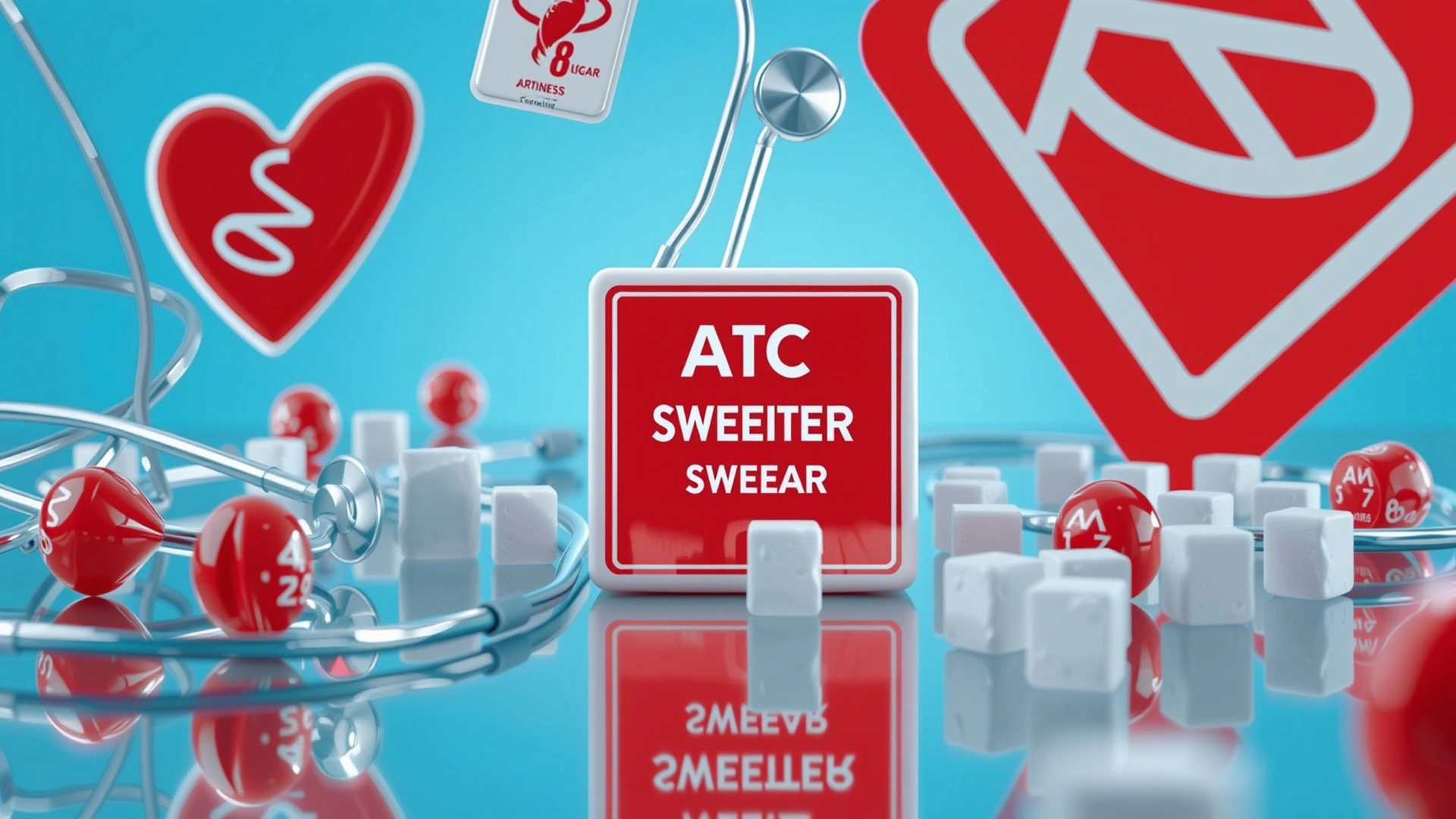Artificial Sweeteners Could Cause Blood Clots
The Risks of Artificial Sweeteners and Their Connection to Blood Clots
The consumption of artificial sweeteners has surged in popularity as people seek healthier alternatives to sugar. However, emerging research is uncovering potential health risks associated with these sweeteners, particularly concerning blood clots. This blog delves into the connection between artificial sweeteners, such as erythritol, and their potential impact on cardiovascular health.
Understanding Artificial Sweeteners

Artificial sweeteners are synthetic sugar substitutes that are significantly sweeter than sugar. They are widely found in food products like soft drinks, desserts, and even medications. Their primary appeal is the promise of sweetness without the calories associated with traditional sugar. However, as their usage has increased, concerns regarding their long-term safety and health implications have also emerged.
Common Types of Artificial Sweeteners
- Aspartame: Commonly found in diet sodas and low-calorie products, aspartame has faced scrutiny regarding its safety.
- Sucralose: Marketed under the brand name Splenda, sucralose is frequently used in baked goods and beverages.
- Erythritol: A sugar alcohol that has gained popularity for its lower-calorie content compared to sugar.
While these sweeteners are often perceived as harmless, ongoing research indicates that they may pose serious health risks.
The Study: Erythritol and Blood Clots

A significant study published in Nature Medicine has highlighted a troubling link between erythritol and blood clot formation. Researchers analyzed blood samples from thousands of individuals, discovering that those with higher levels of erythritol were more likely to experience cardiovascular events, such as heart attacks and strokes
Artificial Sweeteners Could Cause Blood Clots
Key Findings of the Study : Artificial Sweeteners Could Cause Blood Clots
- Increased Platelet Activation: The study showed that erythritol may enhance platelet activation, a critical step in blood clot formation. This heightened activation could increase the risk of thrombosis, especially in individuals with pre-existing cardiovascular conditions.
- Correlation with Cardiovascular Events: Data indicated a correlation between elevated erythritol levels and a higher incidence of heart attacks and strokes, suggesting that regular consumption of this artificial sweetener could have serious health implications.
Implications for Consumers
The findings regarding erythritol serve as a crucial reminder for consumers who heavily rely on artificial sweeteners. As awareness grows regarding the potential dangers of these products, individuals should reassess their consumption habits and consider the health ramifications.
Artificial Sweeteners Could Cause Blood Clots
Safer Sweetener Alternatives II Artificial Sweeteners Could Cause Blood Clots
Given the risks associated with erythritol and other artificial sweeteners, consumers might consider exploring safer alternatives. Natural sweeteners such as:
- Stevia: Derived from the leaves of the Stevia plant, this zero-calorie sweetener does not carry the same risks as artificial options.
- Monk Fruit: Another natural sweetener, monk fruit extract, provides sweetness without calories and may have potential health benefits.
These alternatives can offer a healthier option for those looking to reduce sugar intake without compromising health.
Conclusion
Artificial Sweeteners Could Cause Blood Clots
The alarming connection between artificial sweeteners—particularly erythritol—and the risk of blood clots presents a significant public health concern. As consumers become more aware of the potential dangers associated with these products, it is crucial to make informed dietary choices.
Staying vigilant about ingredient labels, understanding the implications of consuming artificial sweeteners, and opting for natural alternatives can lead to better health outcomes.
For further insights into this study and its implications, you can read the original research article in Nature Medicine here and explore additional discussions on this topic here.
- Introduction Expansion: Start with a compelling hook that emphasizes the popularity of artificial sweeteners and their perceived health benefits. Mention common types like aspartame and sucralose, and why people choose them over sugar.
- Detailed Explanation of the Risks: Dive deeper into the science behind the connection between artificial sweeteners and blood clots. You can include:
- Studies linking erythritol to cardiovascular risks. For instance, a study published in the Nature Medicine journal revealed that high levels of erythritol in the blood were associated with increased clot formation.
- Explain how artificial sweeteners are metabolized in the body, and what research indicates about their effects on blood viscosity and clotting mechanisms.
- Personal Stories or Testimonials: Include anecdotal evidence or testimonials from individuals who experienced health issues after consuming artificial sweeteners. This humanizes the issue and can resonate with readers.
- Expert Opinions: Incorporate quotes or insights from health professionals or nutritionists about the safety of artificial sweeteners and potential alternatives. This adds credibility to your arguments.
- Alternatives to Artificial Sweeteners: List healthier alternatives to artificial sweeteners. Discuss natural sweeteners like stevia or monk fruit extract, including their benefits and potential drawbacks.
- Conclusion and Call to Action: Wrap up with a strong conclusion summarizing the key points. Encourage readers to rethink their sweetener choices and consult health professionals if they have concerns.

